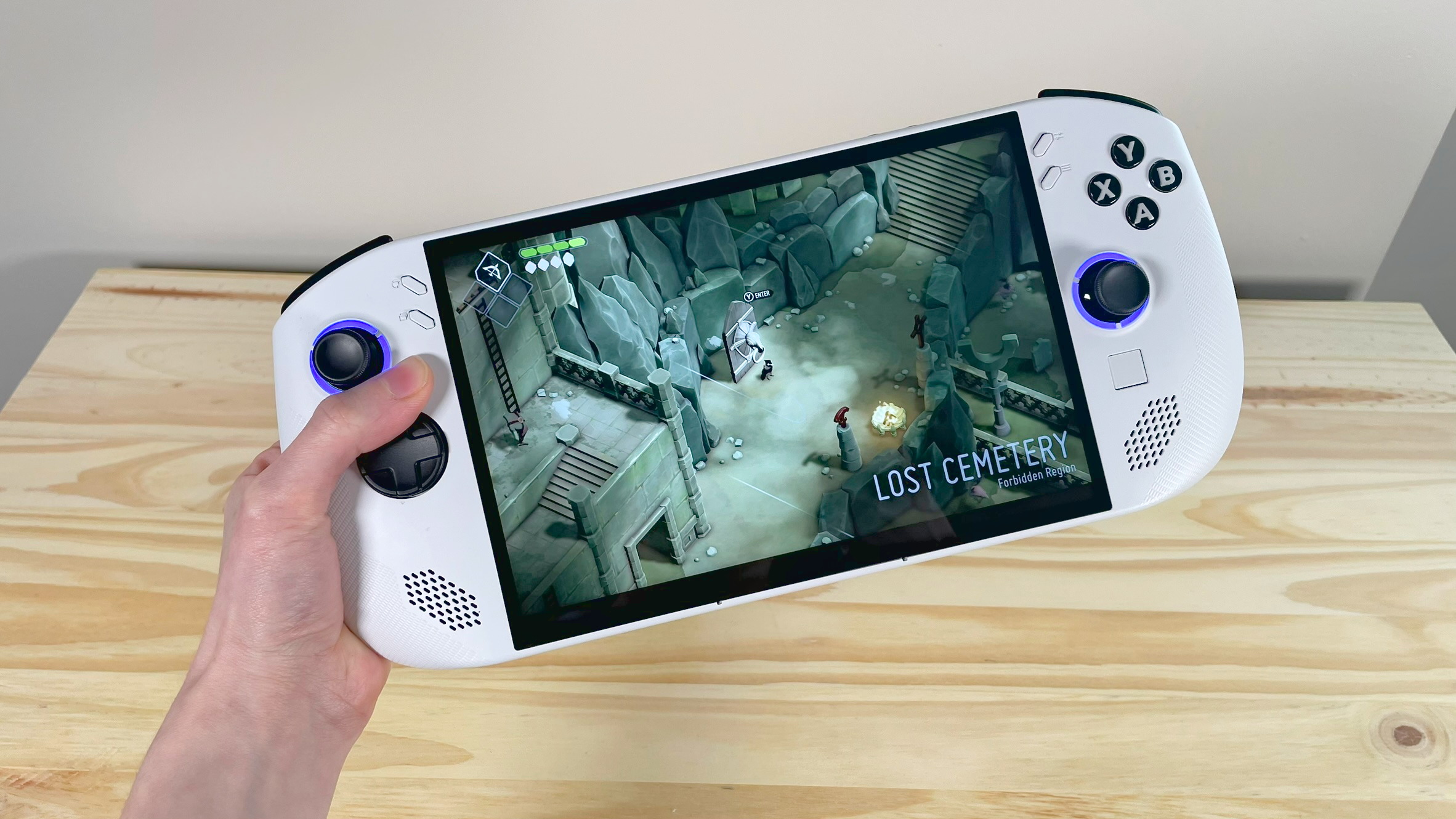Gamers should be ditching Windows for SteamOS — here's why
New test results hint that Linux gamers may have been right all along

Sign up to receive The Snapshot, a free special dispatch from Laptop Mag, in your inbox.
You are now subscribed
Your newsletter sign-up was successful
You might want to think twice before installing Windows 11 on your gaming PC. You could be sacrificing a huge dip in performance, and we finally have proof.
The SteamOS version of the Lenovo Legion Go S debuted over the weekend, and according to tests performed by gaming YouTuber Dave2D, the Legion Go S running on SteamOS trounces in the Windows model in one of the most important areas for a handheld.
The results might just convince you it's time to finally ditch Windows 11. Here's what we know.
On Sunday, Dave2D posted a comparison video showing his side-by-side test results for two Legion Go S handhelds with the same hardware but different operating systems.
The results show a clear and significant lead for the SteamOS version, especially when it comes to battery life. The video title sums up Dave2D's assessment: "Windows was the problem all along."
| Header Cell - Column 0 | Cyberpunk 2077 | Hades | Dead Cells |
|---|---|---|---|
Legion Go S Windows (55Wh) | 1:31 | 1:58 | 2:47 |
Steam Deck OLED (50Wh) | 2:06 | 4:33 | 7:08 |
Legion Go S SteamOS (55Wh) | 1:54 | 4:17 | 6:12 |
A tale of two operating systems
Earlier this year, Lenovo unveiled the Legion Go S, its latest handheld gaming PC and the first handheld that can run on either Windows or SteamOS. The Windows version came out earlier this year but severely under-performed in our testing. Our Legion Go S (Windows) review ultimately found that it "fumbles the one thing it needed to get right."
SteamOS, Valve's in-house version of Linux, was previously only available on the Steam Deck, which is consistently ranked among the best handheld gaming PCs, often topping the list. But is that because it's a uniquely good gaming device, or could it be because it does not run Windows?
Laptop Mag will soon put the new SteamOS version of the Legion Go S through the same rigorous proprietary lab tests we did for the Windows model, and we'll compare the two side by side.
Features: AMD Ryzen Z2 Go processor, 8-inch 120 Hz refresh rate display, 16GB of RAM, 512GB of storage (with a MicroSD slot for up to an additional 2TB).
The SteamOS version of the Legion Go S is the one to get. It boasts better battery life and frame rates, all at a lower price than the Windows version.
Where SteamOS beats Windows
The SteamOS handhelds have over two times more battery life than the Windows 11 version of the Legion Go S, according to Dave2D's testing. Keep in mind, both Legion Go S handhelds in this test have the same hardware from the same manufacturer.
The only difference to account for that huge performance difference is the Linux-based operating system on the SteamOS version.
With fewer background and telemetry processes, Linux can use the Legion Go S's hardware much more efficiently, consuming less battery life and achieving higher FPS.
That's especially impressive considering most games have to run through Steam's Proton compatibility layer, which allows Windows games to run on Linux. You'd think that would hurt performance, but Proton works shockingly well in most games (you can even check the Proton database to see how your favorite Windows games run on Linux).
It's not just gaming handhelds, either. Another YouTuber noticed similar performance gains when switching a gaming laptop from Windows to Linux. I've even seen this myself. I switched an aging laptop to Fedora Linux earlier this year and instantly got 2-3 times longer battery life compared to when the same laptop was running on Windows 10.
There's one weakness still holding back SteamOS
I love gaming on Linux, but it's not perfect. SteamOS can clearly deliver some impressive performance gains, but there's still one big weakness holding it back from being the new must-have OS for PC gaming: anti-cheat systems.
If you like games like Fortnite or Apex Legends, you won't be able to take advantage of the performance boost you'd get on SteamOS because most games that require kernel-level anti-cheat aren't supported on any version of Linux, not even with Valve's Proton compatibility layer.
There are some exceptions. For instance, I've been playing Marvel Rivals on Fedora Linux for months now and very rarely have I run into any issues.
However, as long as the majority of popular competitive multiplayer games require kernel-level anti-cheat that isn't compatible with SteamOS or Linux in general, many gamers will remain locked into Windows.
Hopefully those compatibility problems decrease, because gamers could be missing out on huge performance gains that result from switching to Linux.
We'll have more data on this soon once we complete our in-depth lab tests for the SteamOS version of the Lenovo Legion Go S, so stay tuned for more updates and our full review.
More from Laptop Mag
- I ditched Windows 11 for Linux — and you should, too
- I revived my ancient HP laptop with Linux — and it was easier than you think
- I tried gaming on the Lenovo Legion Go S and now I want to buy a Steam Deck instead

Stevie Bonifield is a freelance tech journalist who has written for PC Gamer, Tom's Guide, and Laptop Mag on everything from gaming to smartwatches. Outside of writing, Stevie loves indie games, TTRPGs, and building way too many custom keyboards.


